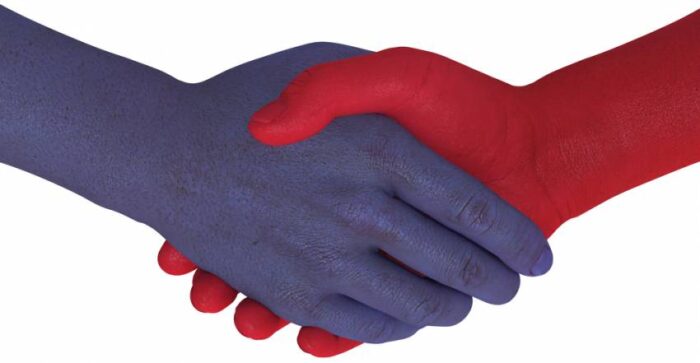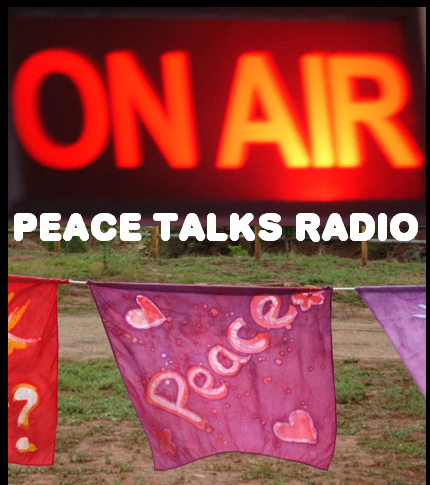While the media has been focused mainly on partisan fighting, Donald Trump’s election has prompted a lot of people to reach out across the aisle to understand those they disagreed with in the last election. It may not go reported in the press, but Obama wants Trump to succeed and Democratic House minority leader Pelosi, among others, has been praying for Trump’s success as well. Prominent journalists have been seeking to cross the divide as well, as have organizations we work with, but in this post, I’d like to highlight the many many Americans who have sought to meet people across the aisle. At Civil Politics, we’ve talked with a lot of people seeking to have these conversations and seeking advice and direction. Our main recommendations – focus on relationships and areas of agreement – remain true, but just as we advocate persuading people through intuitive, emotional appeals, sometimes understanding our recommendations is best done by hearing and empathizing with other people’s experiences.
Josh Quinn, the owner of Tiger Tree, a boutique store in the town where I was raised – Columbus, Ohio – is one of the many people I’ve talked to lately about convening such a group, and he volunteered to write a bit about his experience, in the hopes that others may be similarly inspired and learn from his experience. Below is his story, along with some answers to followup questions we asked from Civil Politics’ perspective.
After consuming literally years of laser focused biased media leading up to this election, I felt like I needed a break to try and find some sense of truth and balance in our democracy. I wanted to at least give myself an honest opportunity to seriously consider positions other than my own; not for the sole purpose of finding their weaknesses, so that I am armed for my rebuttal, but also finding their strengths so that I am better equipped to find common ground and compromise.
After expressing my desire to form a non-debate club, a friend turned me onto the work of Jonathan Haidt which lead to Righteous Mind and then Asteroids Club which seemed like exactly what I was starting but without all of the bother of having to actually go and start it. We recently held our first meeting and it was more successful than I could have hoped. I will detail what did and did not work for our group and what we plan to do in the future in the hopes that it will inspire others to follow suit.
Moderation
I served as the liberal moderator and a new friend of mine served as the conservative moderator. I think moderators who can be balanced are a critical link to this working. You need to establish trust in your audience that they are not walking into some sort of biased trap but a safe space to freely discuss and absorb different philosophies. We didn’t actually do much, other than nudge the conversation and hit the reset button twice when things started to heat up. But I think it sends a strong signal to everyone that there are two figures balancing the scales of the conversation and keeping it even. We did begin by having everyone in the circle state their name, occupation and political affiliation. There was some hesitation from folks I told about this but I think it worked great and really helped to strengthen the bridges between us rather than put up barriers.
Our Rules
We had only two rules, no rebuttals and no phones. This is a listening exercise that involves some occasional talking, not an argument. I became interested in this idea as a way to better understand people as a means to foster empathy. It has gotten so easy to only listen to ideas we already know we agree with that (I believe) that the distance between our accepted beliefs and opposing beliefs has turned into an often impassable chasm. I may never agree with your position on gun control or climate change or any number of issues but I can possibly empathize with your reasoning for holding a different position. Thus no rebuttals. Participants may ask clarifying questions to help better understand why someone holds a position but they may not offer an attack meant to knock an opponent off base. In turn they may be able to give their reasoning for holding a different position. It is a nuanced distinction but if the group is there for the right reason and the moderators keep things under control it works great.
The phone rule was to address how easy it is to google a confirmation of basically any idea that pops into one’s head at this point. In a way I think our critical thinking has become diminished because we have this external biased brain in our pocket to do it for us. Removing phones focuses the conversation to be more authentically of the participants rather than their crowds and I think create some cohesion with the group that would not have existed if a line was still tethering them to their tribes.
The Mix
We ended up with an almost exactly even split politically but, by no design, their makeup was not at all what I would have expected. We had four (not related) liberals from an upper middle class suburb, a conservative that works for a workforce development non profit, a conservative who teaches alternative medicine at a local college, some software folks, a Turkish immigrant businessman, lifelong registered Republicans who campaigned for Hillary or voted third party, and die hard Trump supporters.
We had 12 participants which felt pretty perfect to me. I think our extreme (economic, religious and occupational) diversity probably helped people from feeling they had a base to stick to. More than 12 would have lead to people forming teams and putting up barriers. We also sat in a circle completely mixed together. That helped prevent the sort of overheard hushed side comments that can make the tide turn less respectful.
What We Will Do Differently
I am thrilled that all of our participants want to give this another go. We have even maintained an ongoing conversation on the original event page complete with book and documentary recommendations. The only real difference for our next meeting is that we are sticking to one subject. Last time we meandered through a host of topics, which I think was okay for the initial meeting and kept from scaring off participants that maybe did not feel informed or passionate to show up to a more focused discussion. I would actually recommend that anyone planning a similar discussion pick at least a few topics for the first meeting to let people feel out the concept and drill down from there. People will learn that it’s okay just to show up to listen. It’ not a team sport. There isn’t a winner. You don’t need your teammates also participating.
As of now the plan is to meet once a month with the original group or close to it. We’ll likely allow some folks to filter in and out as long as we maintain a balance and stay around 12 participants. I have gotten a lot of positive feedback through Facebook and people stopping into my shop to talk to me about it so I am hoping to help a few other groups get rolling in Columbus as well and do whatever I can to grow this idea.
Civil Politics asked: How did you start? Was there any structure to it?
If you mean how we started our actually meeting it was by going around the room and introducing who we were and our political affiliation. If you mean the group itself it was a pretty handpicked group of people within my network I thought could handle a civil conversation with people of different political affiliations. I was thrilled to meet my right of center moderator and even when we have disagreed on topics it has never felt divisive. It feels like two friends with a different take on a complex issue which is how I think politics should and can be. The bitterness to which we have become accustomed has been manufactured and can be easily dismantled.
Civil Politics asked: Do you feel like you changed your opinions about any issues? Did others?
I am not sure I feel like I changed my mind on any specific issues the initial meeting. At least our iteration of this is really meant for learning where the other side is coming from, rather than attempting to sway them to your side. I think some altering or clarification of ones own views is a natural byproduct of doing that but I hope it can remain a byproduct and not a focal point.
Civil Politics asked: Do you feel like you changed your opinions about people who differed from you on the issues? Did others change their opinions about others?
All around yes. Even as the organizer of an event meant to disintegrate predispositions about people based on their political leanings I was blown away by how much of that happened to me. We had a wonderfully civil discussion involving people across the entire political spectrum. Honestly I had more bones to pick with people on “my” side of the aisle not being receptive to opposing ideas than the other way around. This really solidified my feeling that we have more in common than not and if we just spent more time getting to know each other a lot of our problems perceived problems would be erased. As someone who identifies as left of center I do always feel the need to include the caveat that I understand I say that from a position of privilege. I am a straight, white, male that has been fortunate enough to be successful in business. I feel like I understand as well as I can what those that feel attacked by a certain element of the right are scared of at the moment and I don’t want to delegitimize those fears. But a lot of people on the right are saying “hey that isn’t me at all” so why not listen to them and make allies in your fight against the things that matter to you? I’ve been thinking a lot about this lately in the way that we on the left claim (and I think rightfully so) that in a way the far right is to blame for militant Islamist groups by way of Islamophobia giving fodder to radical clerics to prove that there is a war on their religion that requires a response. Yet we continue to treat the right as if they are a homogeneous group that is only defined by their fringes and then get surprised when they react by grouping together with people or power centers who are closer ideologically, even if they don’t agree with everything that is being said.
I’d like to personally thank Josh and all the others who are consciously trying to bridge the divisions that we all see are destructive to our political process and our community. Josh found inspiration in
Jon Haidt’s Asteroid’s Club model, but groups like
The Village Square,
Living Room Conversations, and
Essential Partners all have resources that can help you have a positive conversation in your community. Feel free to email me as well (ravi at civil politics dot org) as I’m happy to offer advice and would love to learn about your efforts as well. Truth be told, it isn’t as complex as we academics may make it seem and all that is really required is a willingness to listen and try to form a relationship, rather than convince those who disagree. We’ve been part of many such conversations, and both statistically and anecdotally, people rarely change their mind about issues, but most people walk away with empathy for those they talked with and often, like Josh, a few new friends.
– Ravi Iyer




